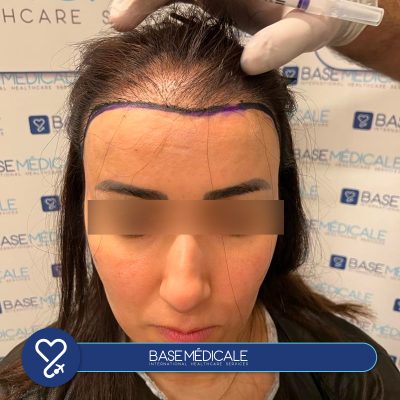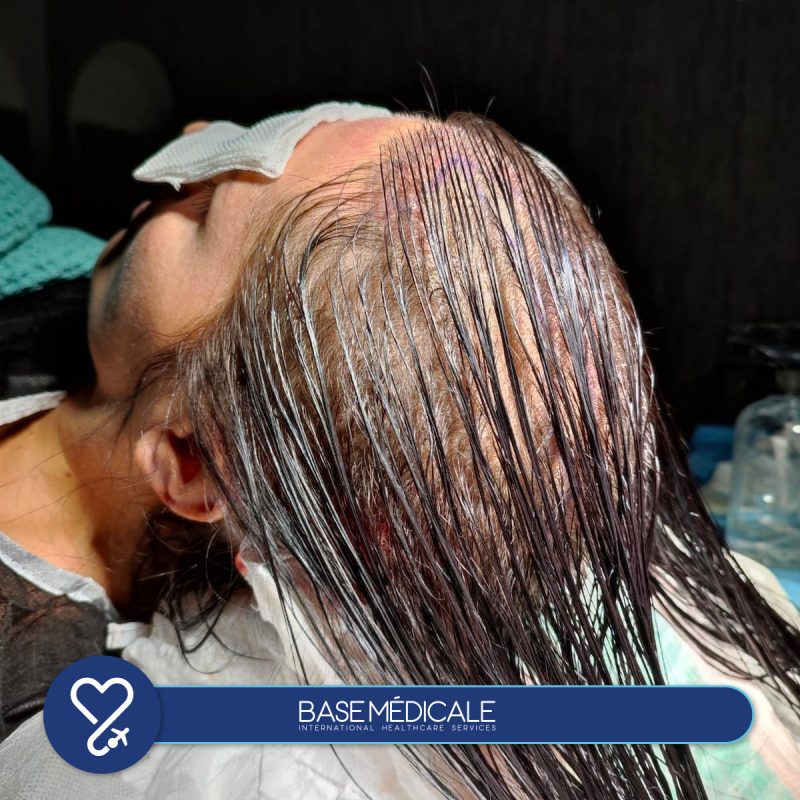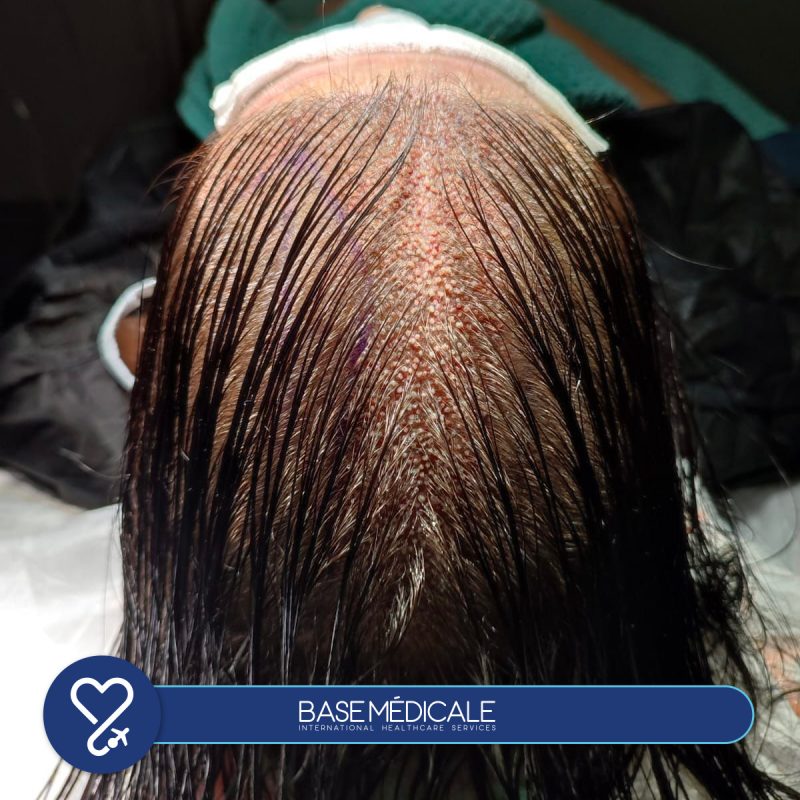Hair transplantation for women
The absence of hair in women can have very significant social-psychological effects. Hair loss often has a greater impact on them than on men. Hair loss can seriously affect a woman’s emotional well-being and self-image, as well as her quality of life, leading to psychological problems and a weakening of her social life.
Hair loss can cause sparse or zonal hair loss in women, although it is not as common as in men. Thanks to the studies and technological developments in this field, great progress has been made in the field of hair transplantation in women.
The types and patterns of hair loss in women have a different course and symptoms than in men. While hair loss in men is concentrated in certain areas of the head, female hair falls out more evenly. However, it can be said that hair loss in women is generally slightly more pronounced on the top of the head.
Treatment Summary
Durée de l’opération
5-7 heures
Anesthésie
Locale
Nuitée à l’hôpital
Aucune
Récupération
Immédiate
Retour au travail
Immédiat
Garantie à vie
Hôtel de luxe
Transfert VIP
Hair loss can occur at any time in a woman’s life, from puberty to old age. During the initial diagnosis, other causes should be considered besides genetic factors, such as medical conditions, i.e. medication, pregnancy, childbirth, severe anemia, nutritional deficiencies, rapid weight loss, thyroid problems, underlying diseases of the scalp (ringworm, fungal infections, folliculitis, etc.).
Hair transplantation in women is performed in the same way as in men and the individual steps are performed in the same way. The FUE or DHI method are the two methods that can be used in women depending on their needs.
Are you interested in hair transplantation?
Are you a good candidate for hair transplant?
Would you like more information about this method?
Do not hesitate to contact our medical advisors for a quick and free response.

 Français
Français



